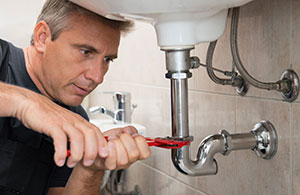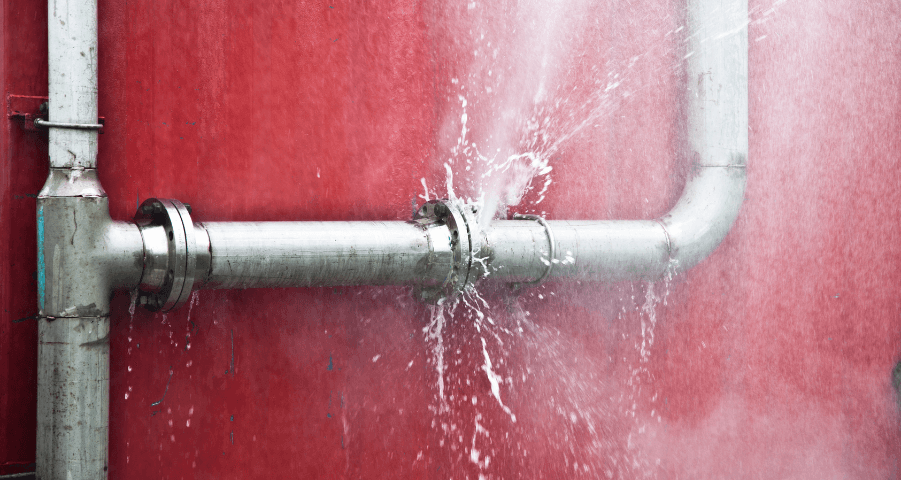Do you find yourself interested in advice around Expert Tips for Emergency Plumbing Repairs?

Plumbing emergencies can strike at any time, triggering stress and possible damage to your home. Whether it's a ruptured pipe, a clogged up drain, or a dripping faucet, recognizing how to handle the situation up until a professional plumbing technician gets here can conserve you from further issues. This article supplies essential emergency pipes tips to assist you mitigate damage and reclaim control during a pipes crisis.
Shut off the Water
The initial step in any type of pipes emergency is to turn off the water. For localized problems, such as a dripping faucet or bathroom, shut off the shutoff near the fixture. In the case of a significant leakage or burst pipe, find your home's major water shut-off valve and turn it off immediately. Knowing the place of these shutoffs ahead of time can save important time throughout an emergency situation.
Shut Off Your Water Heater
In specific emergency situations, such as a ruptured pipe, it's important to shut down your water heater. This avoids getting too hot or damages to the device when water quits flowing. Turn off the power supply to the water heater (electrical or gas) and allow it cool to prevent prospective dangers.
Momentarily Quit a Ruptured Pipe
A burst pipe can result in considerable water damages in mins. To reduce the issue:
Call a professional plumber instantly to address the problem completely.
Have an Emergency Situation Pipes Package
Prepare a basic plumbing emergency kit to deal with minor problems successfully. Your package needs to include:
Having these devices handy can make a substantial distinction in your capacity to take care of emergencies.
Unclog Drains Safely.
A clogged drain can be a frustrating and messy issue. Here's how to tackle it:.
If these techniques don't work, avoid using excessive pressure, as it might get worse the clog.
Handle Overflowing Toilets.
An overruning bathroom can trigger prompt turmoil. Right here's what you ought to do:.
Address Small Leakages with Momentary Solutions.
Little leaks can swiftly become substantial issues if left uncontrolled. Utilize these temporary repairs till expert help shows up:.
While these solutions aren't irreversible, they can help lessen water loss and damage.
Handle Frozen Pipeline Meticulously.
In colder environments, icy pipes are an usual emergency. If you think an icy pipe:.
Know When to Call an Expert.
While quick fixes can aid temporarily, certain plumbing problems call for immediate expert interest. Call a plumbing professional if:.
Immediately contacting an expert makes certain the concern is dealt with appropriately and prevents additional difficulties.
Avoid More Damage.
Taking quick activity to lessen damages can save you time and money in the long run. Here's how:.
Final thought.
Plumbing emergencies can be frustrating, yet with the appropriate understanding and tools, you can manage the situation properly up until assistance arrives. By switching off the water, attending to small leakages, and making use of short-lived solutions, you can reduce damage and maintain your home safe. Keep in mind, these tips are temporary options; always consult a qualified plumbing technician to deal with the origin of the trouble. Prep work and quick reasoning are your finest allies in any pipes emergency.
8 Helpful Tips for Managing Plumbing Emergencies at Home
If your plumbing system hasn’t failed once, wait for it because almost everyone has a story to tell. Sometimes, it could be simple emergencies such as a leaking pipe, a blocked cistern, or even a big burst pipe. In situations like this, you need to have some handy tips to save you some money and from possible damages.
Take care of minor issues early.
Sometimes, you could have avoided an emergency by taking proactive measures while it was still early. Some major plumbing emergencies can be a result of an ignored minor issue. We recommend that you have items like plumbing tapes and other related items. A plumbing tape can allow you to manage minor leaks before the plumber arrives.
Cut off the water supply.
This tip is essential in almost any type of leakage problem. For problems like minor leakages in the toilet or kitchen, turn off the supply that takes water to the affected pipes. If the leakage is a major pipe, you must shut off the supply valve to the entire building. This will help you avoid flooding your home and neighbors if you share a flat.
Know your plumbing system
Folks typically move into a new apartment without understanding the water supply around the building. This can prove disastrous if a water emergency arises and the plumber is far away. The previous tip will prove useless if you don’t practice this one. More importantly, know where your water shut-off valve is located – you’ll need that knowledge to prevent potential home floods.
Have some common handy tools
There are lots of plumbing emergencies that you can handle without hiring a plumber. That’s why you must keep some tools available always. Some tools that you can use to fix simple plumbing emergencies easily include plumbing tapes, screwdrivers, thread seal tapes, plungers, pliers, tape measures, and rubber gloves.
Insulate your pipes from cold
You’ll save yourself from many plumbing expenses if you protect your water pipes from the cold. This is because of the harmful effects that cold weather can have on your pipes. During winter, your pipes can burst from being overly expected to freezing temperatures. So, make sure insulators are there to keep the pipes working correctly.
Avoid practices that will clog your toilet.
Many people indulge in practices that can damage the plumbing system of the entire building. One of these is when they use their toilet to dispose-off garbage. They flush all kinds of things, such as paper towels, bandages, hairs, female sanitary products, etc., down the toilet. This will block your toilet in the long run, incurring unnecessary expenditures. Dump such waste in the trash instead.
Check your dials regularly.
Sometimes, there could be leakages in your home without noticing them in time. So, constantly monitor your water meter dial. If the dial is reading when there is nobody using water, this is an indicator that there is leaking. Check for leaks immediately. Call a plumber as soon as possible if you can’t find any.
https://www.constructionplacements.com/8-helpful-tips-for-managing-plumbing-emergencies-at-home/

I stumbled upon that piece of writing on Expert Tips for Managing a Plumbing Emergency Until Help Arrives when surfing the search engines. Sharing is caring. Helping others is fun. Many thanks for going through it.
Schedule Appointment Now